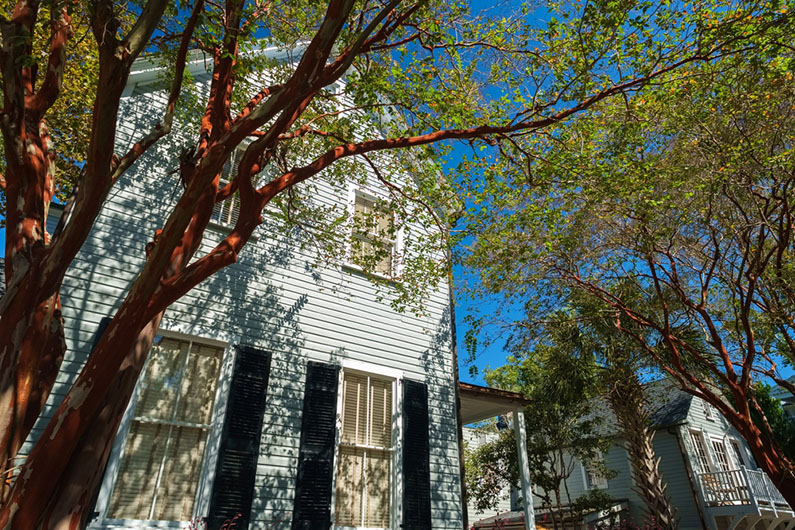Home sale prices have been rising for some time now, and the median sale is 8% more than it was 12 months ago. That’s motivating many homeowners to list their homes and make a good profit, but you might be moving for other reasons. Career changes, different school districts, or family changes are all common motivations to sell your home and buy a new one.
Whether you are staying in the same city or relocating to a different state, there’s quite a bit involved with buying and selling two different homes simultaneously. Unfortunately, some details can slip through the cracks as you will be overwhelmed with details ranging from real estate documents to utilities and appliances. Amid it all, you might neglect finding a place to stay after your old home sells but you have yet to buy your new one.
The good news is that you can find a comfortable place to stay while waiting to assume actual possession of your next home. It doesn’t have to cost much if you do things right. The trick is knowing your options so you can pick the best one available, and we’re going to cover those for you here.

Explore Charming Homes in Mount Pleasant
What Happens After Your Home Sale?
The paperwork begins once a buyer makes an offer on your home that you accept. Everything has to be signed and dated, and the buyer’s agent will submit documentation to the title company. That company will run a search to make sure the property is clear of encumbrances or liens, and then they’ll issue the buyer a title insurance policy. This sets the stage for closing day, and that’s when everyone involved gathers together at the title company. Here, you sign the final papers and exchange the keys to the home. You’ll get your sale proceeds, but you might also have to move immediately.
If your house for sale in Mount Pleasant, SC, officially closes, then you might wind up having to move out quickly. The time you have to do this will depend on the specific terms you negotiated with your home’s buyer. In a purely technical sense, home possession transfers to new ownership at one of two points. The first is at closing, and the second would be after a mortgage lender pays out the necessary funds to the buyer. Having said that, you or your real estate professional might be able to negotiate extra time to remain in the home even after the closing.
Negotiating a move-out date that aligns with your anticipated schedule is helpful. However, you need to ensure this happens before signing the contract. To accomplish this, you must also determine what move-out date would be ideal for you and your family before listing your home. However, buyers are also likely to have a desired time frame for moving into the property, so you’ll have to work with them to strike a balance that works well for all parties involved.
If the contract doesn’t state a specific move-out date, you’ll probably have to move out before you even finish the closing process. Should this happen when you have yet to close on your next home, you will face the stress of finding a place to stay in the interim.
Discover Beautiful Sullivan’s Island Properties
How Can You Align the Timing of Selling and Buying?
Whether either place is a prime piece of Sullivan’s Island real estate or somewhere else, the process involved with selling one home while buying another is a seriously complicated matter. The chances of you being able to move out of your previous home and right into the new one are pretty slim in terms of perfect timing. You can increase your odds if you compromise with your older home’s buyers, and you might even be able to negotiate similar details with the sellers of the home you are buying. If you’re facing a gap between selling your old home and buying the next one, talk to all parties involved to see if there’s any wiggle room on either end.
 Buyers frequently give sellers some leeway about having to move out. They rarely expect sellers to move out the very minute things physically have been signed on all the various closing papers. In many cases, buyers give sellers around a week or up to 10 days following the closing before they have to vacate the property entirely. In other cases, buyers might even be amenable to providing more time. If they’ve been hunting for a home for a while, they might be pleasantly surprised to close on one finally and weren’t even expecting to be able to move in on their own. This does vary with each family or household, however.
Buyers frequently give sellers some leeway about having to move out. They rarely expect sellers to move out the very minute things physically have been signed on all the various closing papers. In many cases, buyers give sellers around a week or up to 10 days following the closing before they have to vacate the property entirely. In other cases, buyers might even be amenable to providing more time. If they’ve been hunting for a home for a while, they might be pleasantly surprised to close on one finally and weren’t even expecting to be able to move in on their own. This does vary with each family or household, however.
If you want to get some flexibility out of your buyers, you need to be flexible, too. Buyers might want to start storing things in the garage, attic, or basement during their transition. They also might want to stop by and measure specific rooms while they plan for furniture shopping. You might also need to let certain professionals into the home if they are getting quotes for renovations that they plan on. The more concessions and favors you’re willing to make to the buyers, the more likely they will reciprocate.
Where to Stay Between Buying and Selling
Any ideal process involving selling one home and buying your next would mean you move from the old home to the new one without any stops in between. If you’re staying in the same city, you might be able to do that all in one day. However, you might need temporary housing for a month or more between selling and buying. Talk to your real estate agent about handling this because they’ve likely handled this situation several times before. They might have leads for temporary housing, but we’re here to help you learn your likely options.

Rent-Back Agreements
The most convenient option might be to sell your home with a rent-back agreement included. Before you officially close on your old home, inquire with your buyers about renting the home for a specific period. If they have yet to sell their own home or are finishing out a lease, they may let you stay in your old home until they’re ready to move themselves. Negotiate and sign a lease about how long you’ll stay and how much you’ll pay in rent and utilities. This way, you can stay right where you’re at until a later date that works out for all parties involved. Just know that most rent-back agreements only last 60 days, and not all buyers are interested in such arrangements.
Short-Term Rentals
If you’ve been dealing with the local market for buying and selling homes, then you probably haven’t paid much attention to how competitive the rental market is. However, you might find a good deal on a short-term rental if it’s not that stiff. These can range from vacation homes to hotels.
Vacation Homes
Vacation homes are short-term rentals you might find through VRBO or Airbnb. People who own such properties often love doing extended rentals because they know they have money coming in for a while. If you’re moving during the local off-season, inquire about getting a slight discount. When your furniture is in a separate storage facility, these options provide furnished spaces in residential areas. That works out well if you have children or pets. You also get more privacy than you might at a hotel.
Extended-Stay Hotels
Many hotels are expensive to stay at for a long time, but one category differs. Extended-stay hotels are useful if you don’t have pets or kids, and they can work out well if you’re single. The space you get is much smaller than a vacation home or an apartment, but you get much more flexibility in your arrangements. A typical extended-stay hotel space has a kitchen and a little living area, but you need to make sure the reviews of any property are solid and Wi-Fi is freely available. However, if you’re being forced to relocate due to work, your company might cover the bills associated with this kind of housing.
Corporate-Style Housing
Job relocation might also cover corporate-style housing, usually a furnished apartment where professionals stay when doing long-term business. You can also explore these options privately without your employer involved, but be prepared to pay more than many short-term rentals. They usually cost more, but you can decide exactly when you start and stop your stay.
Friends and Family
Social media can be an effective tool to advertise the home you are selling, but it can also help you find a place to stay between homes. Make posts on any platforms you’re active on about what your needs are, and then share it with friends and family. You might connect with a former colleague with a vacant second home or a relative with an empty vacation rental. Someone with whom you have an existing relationship is more likely to be flexible and work with your budget and schedule. Do try and offer market-rate payments to friends and family, however. They shouldn’t face losing money just because they’re doing you a favor, and you can ruin a relationship by asking for too much.
Apartments and Condos
Most of the options in this list will involve storing many of your belongings separately from where you stay during the interim. However, a condo or an apartment might be different. While many such residences usually rent out for long leases, some might offer short-term or month-to-month leases you can customize to suit the gap in your home schedule. One advantage is being able to bring your possessions and furniture with you. You might not have as much space as you used to, and these places might be crowded and noisy. However, you can still live comfortably and possibly avoid storage unit rental fees.

Vacant Homes
You might be able to find a temporary residence by working with other sellers who have the opposite problem that you’re facing right now. While you might need a place to stay after selling and before buying, some sellers might have to move out of their home before they sell it. In such cases, their home is on the market but sitting empty while they still have to cover the overhead of owning it. You can rent a vacant home for several months while it’s on the market. You get a place to stay for a short while, and those sellers get help covering property taxes, maintenance, and the mortgage.
Let Dunes Properties of Charleston Help You
When figuring out where you can live between selling and buying homes, why not turn to a company known throughout the Lowcountry for property management, vacation rentals, and real estate? Whether you want to explore historic downtown Charleston rentals or get something right on the beach, we can help you and your family find both temporary and permanent accommodations. We’ve been doing this since 1989, and we currently feature nearly 100 real estate agents, employees, and many exclusive vacation rental opportunities. Count on us to find exciting possibilities and help smooth the transition between your old and new homes.
